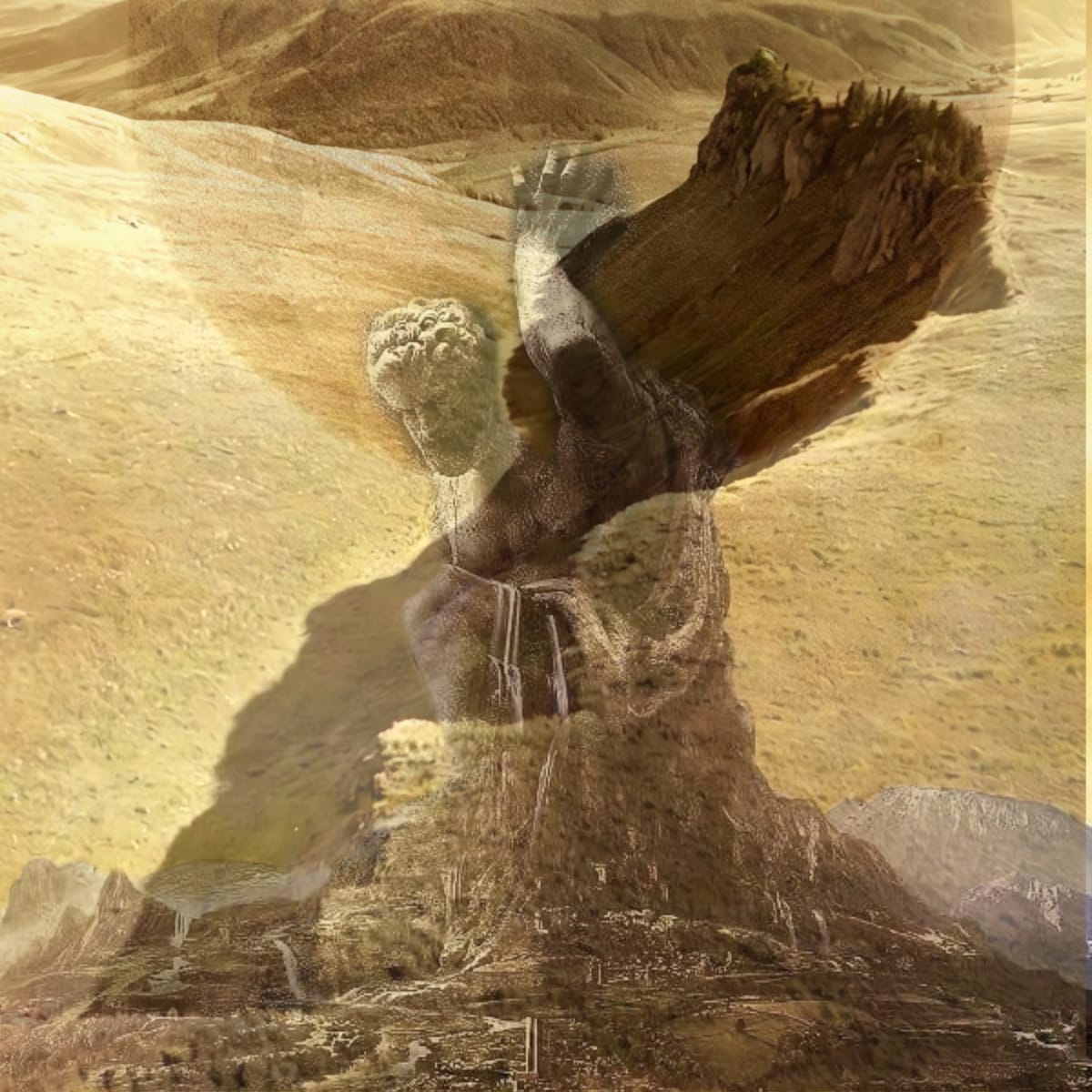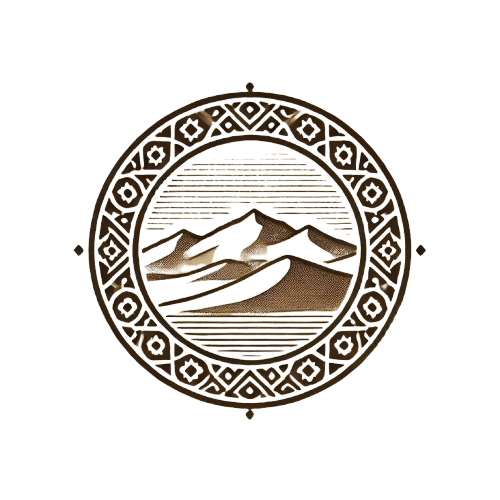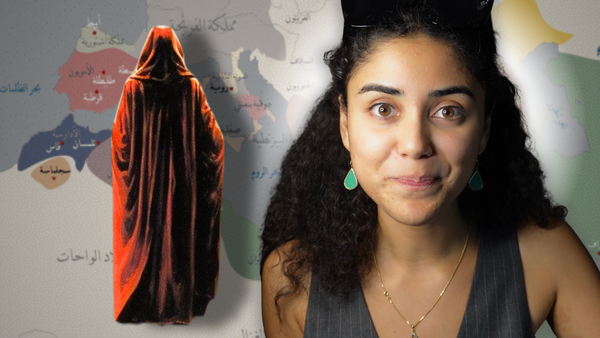(Full Ebook) The Edge of their World: 4 Greek Legends Surrounding Morocco

To the ancient Greeks, Morocco was much like a dead end on the map. But what they called the edge of the world was merely the end of what they could imagine. Still, when the Greeks dreamt of monsters and made up stories about noble quests, they often looked west towards al Maghrib : the place where the sun hesitates before dropping into the sea.
Set in real landscapes of Morocco (Larache or Lixus, Tangier or Tingis, the Atlas mountains, Ceuta - Spain - or Oggygia), this free ebook revisits four ancient myths: the enchanting garden of the Hesperides, Atlas' burden beneath the heavens, Antaeus rising from the African soil, and Calypso desperately waiting by the strait.
I hope you enjoy reading as much as I enjoyed writing it. And to give you a taste of what you may find in the pages that follow, here is the full Introduction of the Ebook.
There are places ancient civilisations wrote about that no longer exist. And then, there’s Morocco. A key to the door that connects (or seperates depending on who is locking it) East and West ; an earthy kiss between two very different waters - or, like King Hassan II once called it himself, "a tree whose roots delve deep into Africa and whose leaves breathe in Europe".
This is not a history book ; or at least, not in the conventional sense.
Though I’ve had to browse through "historical" sources to gather its stones, what you will find in the pages that follow are nothing but a collection of borrowed stories, fragments of legends… very old ones. A retelling of myths that the Greeks, architects of Western myth, told about far-off lands they couldn’t reach but dreamed about.
When they looked towards Northwest Africa, beyond the Pillars of Heracles (what we now call "the Strait of Jibraltar") they vividly imagined an "elsewhere" filled with magic and mysticism ; giants and golden apples (or oranges depending on the source) ;
The kind of furniture you find in the mental apartments of old men on the blink of death (or bottle-weary ones), when they look at very distant coastlines and start drawing gods into the gaps.
They called it "the edge of the world" : surely it was the edge of theirs. You see, the world as the Greeks saw it was much like a terrestrial disk : one big ocean, Océanos, formed a belt around the inhabited world: oikouménē , and the coasts of present-day Morocco would have been the western frontier between waters and land.
There, was something they couldn't quite name... But the brain is a machine that produces meaning to breathe coherence into chaos. So, like anyone else, really, they created names, drew lines outside of which was the "elsewhere". And with that comes a lot of projection, a good dose of imagination.
Herodotus of Halicarnus (c.484 - c. 425 BCE), who didn't quite believe the myths but couldn't stop recording them either, saw the world as made of three continents : Europe, Asia and Libya (Africa, the size of which he definitely underestimated much like the Mercator's map). He believed Libya, inhabited by the "Libyans" (Imazighen), was encircled by the sea, as Phoenicians were reportedly able to sail around it (Histories, book IV, 42 by Herodotus). While he was more familiar with its eastern flank, the West remained somewhat of a distant question mark on the map ; though the Greeks had been in contact with Northwest Africa and had some limited knowledge of the ancient Amazigh peoples, or Libyans as they called them. Herodotus, for instance, took notes from Greek expeditions that stretched from the Egyptian borders to the promontory of Soloeis - what we now call "Cape Spartel" in Tangier. In his accounts, he describes a tribe : the Maxyes, who shaved the left side of their skulls and let their hair grow on the right. A parallel was drawn by historians with the inhabitants of the Rif, in the Amazigh tribes of Morocco who used to wear at one point in time, for centuries, hair on the right side, just like the Maxyes. Similary, goatskin is described by Greek and Roman writers as a traditional Libyan garment, and the tabandja, an apron that covers the chest and belly, was for a long time worn by Moroccan Amazigh hunters and warriors. Herodotus also mentions northern regions of Morocco on numerous occasions, recounting the Carthaginian journey of Sataspes who had been ordered to sail around Libya, only to cross the Strait of Jibraltar known as the Pillars of Hercules (Heracles)n, and round Cape Spartel in present-day Tangier or the promontory of Soloeis, ... (Histories, XLIII)
But still, for the most part, the West was a blank space to the Greek. It's always the same logic : the more they looked away from Greece, the stranger the world became to them.
And so, this "elsewhere" (which has no precise location up until this day) became sort of like a canva ; a stage onto which they flung the products of their imagination, their gods, their dreams and nightmares. And naturally, monsters always live far away enough not to answer back, but close enough to haunt their maps still and keep them on their toes.
Now, before anyone raises a finger : yes, these myths are somewhat attributed to the Greeks. And yet here I am, a Moroccan woman dusting them off (and I’m still not entirely sure how to even pronounce “Hesperides”).
Truth betold, I find it fascinating how the same legends that were written in ancient Athens, inscribed in their scrolls only to survive to see today, have circulated orally, for thousands of years, amongst Amazigh tribes (though we know very litle of the) and were an integrate part of their folklore, under different names (Antaeus = Anti in Libyan folklore). I'm not trying to prove the origins of these stories by any means and will happily let the academics discuss them as I am certainly not qualified. But let's just say I wouldn't be too shocked to learn that these myths don't truly belong to anyone ; that they are nothing but traveling stories, from north to south, mouth to mouth, guest to host. That human imagination just has a tedious yet comforting way of coming back to the same conclusions, in every mind.
Also, a simpler and more personal motive behind this Ebook is... I’ve always had a thing for fiction ; the kind that knows it is fiction and doesn’t pretend to be anything more than that. The kind that tells you straight up “I’m lying, but only because the truth wouldn’t sit still and you look like you need a distraction from all your questions right now". Fiction walks around barefoot and lets you follow it without asking for much, and it allows you to hear the places you travel to or hear of, ask for stories to be made about them.
That is, it seems, how the Greeks worked their legends (or so I suppose, though I must admit I donnot know much about them at all) : they might have come across something foreign like a tall and silent peak in the northafrican horizon, (say, the Toubqal mount?) and have somehow imaigned a Titan beneath it punished by Zeus, god of their gods, holding the heavens up for eternity.
I suppose you could say I’m stretching, having inhaled one old book de trop and am now hallucinating Atlantis off the coast of Tangier, and you wouldn't be too far off. I, too, have a weakness for wonder, which is what brought upon this Ebook.
Of course, North Africa doesn’t need to be mythologized. It does not stretch itself to be poetry : it is a poem to itself. But the point is, it doesn't take too hard of a look to see why people as foreign to this land as one can be, decided to draw their gods here. I understand how one might look at our corner of the earth and say “yes, that’s pretty much it. This, is where we will place the edge of things ; this is the door that men, tired of reason, inevitably end up walking through, hoping to misplace their souls among the divine on the other side". You feel me?
And you, yourself, might also get it if you too have stood, completely still, time and time again (almost every summer in my case) under the hottest August sun, on the coastline of Fnideq between Tetouan and Sebta (Ceuta, Spain), waiting for your family to come back from the market, looking up at the Strait of Jibraltar (or what we can see of it) and thought to yourself “well of course they invented stories about this place. What else could they do?”
However, I do want to point out that if what follows isn’t an attempt at having Morocco claim any of these stories, it does claim something : they all leaned west, undeniably. And most of the literature agrees that the Greeks, when they dreamed, pointed in this direction, where they believed their road disappeared.
They called it "the edge of the world" : the land bordered by the Océanos (oκεανός). So, if you'll let me, I'd like us to walk a little closer to the shore.
Here are 4 Greek legends that have seemingly decided to make Morocco their home.

